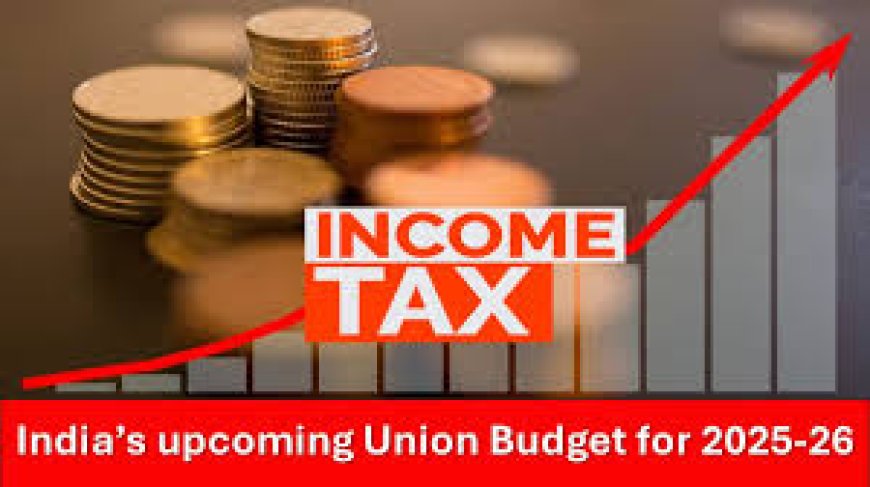Budget 2025: Essential Tax Discrepancies That Should Be Addressed
Explore the major tax inconsistencies that require immediate attention in Budget 2025. Understand how resolving these issues can simplify the tax system, benefit taxpayers, and boost economic growth.

Budget 2025: Addressing Key Tax Issues for a Balanced Economy
As Budget 2025 approaches, discussions around tax reforms are heating up. Experts and taxpayers alike are urging the government to address longstanding tax discrepancies. These anomalies have not only complicated the tax system but have also impacted individuals and businesses adversely. Here’s a closer look at the critical tax issues that should be resolved to ensure a fair and transparent taxation framework.
1. Eliminating Double Taxation on Certain Incomes
- Many taxpayers face the issue of double taxation, where the same income is taxed twice under different provisions.
- For example, dividends or overseas income often fall into this category, causing undue financial strain.
- Simplifying the tax code to address these overlaps will ensure fairness and reduce the burden on taxpayers.
2. Addressing Disparities in Tax Slabs for Different Income Groups
- The current income tax slab structure often leaves middle-income earners feeling squeezed.
- Higher income groups benefit from exemptions, while middle earners bear a larger relative burden.
- Revising the slabs to provide equitable relief across all income brackets is a key area of focus for Budget 2025.
3. Removing Complexity in GST Compliance
- The Goods and Services Tax (GST) has streamlined indirect taxation but still presents challenges.
- Complex filing procedures and varying rates for similar goods and services confuse businesses.
- Simplifying GST compliance and rationalizing tax rates will boost efficiency for businesses and encourage compliance.
4. Harmonizing Direct and Indirect Tax Policies
- Misalignment between direct taxes (like income tax) and indirect taxes (like GST) creates inefficiencies in the system.
- For instance, input tax credits often do not align with corporate tax liabilities, leading to disputes.
- Budget 2025 can address these discrepancies by ensuring consistency across tax policies.
5. Resolving Ambiguities in Tax Deductions
- Certain tax deductions, such as those for home loans or health insurance, come with unclear guidelines.
- Ambiguities in claiming these benefits often lead to disputes between taxpayers and authorities.
- Clearer rules and streamlined processes for availing deductions will reduce confusion and litigation.
6. Encouraging Investments Through Tax Incentives
- Investment-related tax benefits have become less competitive over time, discouraging savings and investments.
- Revisiting these incentives, particularly for sectors like green energy or infrastructure, can drive growth.
- Offering higher exemptions or deductions for long-term investments will attract more participants.
7. Reducing Tax Disputes Through Transparent Mechanisms
- Tax disputes remain a significant challenge, tying up resources and creating delays.
- The government should focus on creating a robust dispute resolution framework.
- Mechanisms like faceless assessments and mediation panels can promote trust and reduce litigation.
8. Streamlining Compliance for Small Businesses
- Small and medium-sized enterprises (SMEs) often face disproportionate compliance burdens.
- Complex filing requirements and high penalties deter their growth and compliance.
- Simplifying tax structures and introducing thresholds for SMEs can provide much-needed relief.
9. Aligning Tax Policies with Global Standards
- In an increasingly globalized world, India’s tax policies need to align with international best practices.
- Issues like base erosion and profit shifting (BEPS) and digital taxation require urgent attention.
- Adopting transparent and globally accepted tax frameworks will enhance India’s competitiveness.
10. Providing Relief to Senior Citizens
- Senior citizens often face challenges in navigating the tax system due to its complexity.
- Offering higher exemptions, simplified filing processes, and targeted benefits can ease their financial burden.
Impact of Resolving These Tax Issues
Addressing these tax anomalies can have a wide-reaching impact:
- Simplified Compliance: A clearer tax code will encourage voluntary compliance among taxpayers.
- Boosting Investments: Investor-friendly tax policies will drive economic growth.
- Enhanced Revenue Collection: Resolving disputes and reducing evasion will increase tax collections.
- Fairer System: A balanced and transparent tax structure will ensure equity and reduce grievances.
Conclusion
Budget 2025 presents a golden opportunity to address persistent tax inconsistencies and streamline the system. By focusing on these critical areas, the government can create a taxation framework that is fair, efficient, and growth-oriented. Resolving these anomalies will not only benefit taxpayers but also strengthen the nation’s economy in the long run.
With the right reforms, Budget 2025 can pave the way for a simpler, more transparent, and inclusive tax system, ensuring progress for all.
This article provides an engaging, clear, and comprehensive overview of the pressing tax issues for Budget 2025, making it informative and enjoyable for readers.
What's Your Reaction?

































































